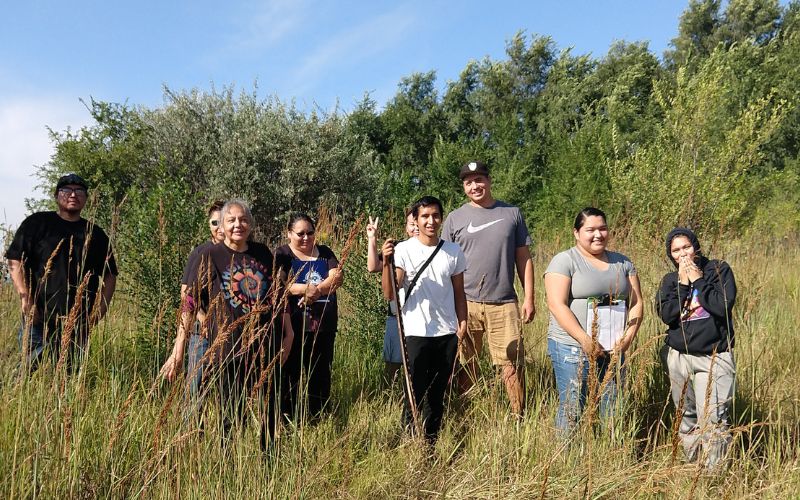
- Details
- By Native News Online Staff
The Nebraska Indian Community College (NICC) is set to break new ground in the fall of 2025 with the launch of its second baccalaureate program, a Bachelor of Science in Indigenous Environmental Health. Combining public health and environmental science through an Indigenous lens, this innovative program is designed to address pressing health and environmental challenges in Native communities.
The program, which spans 124 credits, is designed to meet the rigorous requirements for accreditation by the National Environmental Health Science and Protection Accreditation Council. Once implemented, NICC will be the first higher education institution in the United States to offer such a degree, making it a significant milestone in both Indigenous education and environmental health studies.
Hank Miller, a longtime member of NICC’s staff with over two decades of experience, played a key role in developing the new program. Miller emphasized the importance of creating a space to explore the connections between environmental health and human health, an area that resonates deeply with Indigenous values of harmony and sustainability.
NICC President Michael Oltrogge expressed gratitude for the multi-year award from the National Science Foundation, which provided critical funding to develop and launch the program. "This degree responds directly to the needs and requests of the communities we serve," Oltrogge noted, highlighting the college’s commitment to addressing local and global challenges through education.
Dr. Maeghan Murie-Mazariegos, Head of NICC’s Math & Science Division, underscored the transformative potential of the program. “This program combines Indigenous knowledge with scientific principles, empowering students to safeguard both our communities’ health and the environment,” she said. “Together, we will ensure a sustainable future, rooted in respect for the land and its people.”
The program has also attracted new talent to NICC, including Public Health Faculty member Dr. Ezaz Haque. Dr. Haque praised the program for its interdisciplinary approach, saying, “This program blends traditional knowledge with modern science, offering new opportunities for research that addresses health and environmental challenges in Indigenous communities. We are committed to promoting wellness and sustainability for future generations.”
Dean of Academic Affairs Dr. Kristine Sudbeck highlighted the program’s stackable design, building on NICC’s existing Associate of Science in General Science Studies. She added that the college plans to establish articulation agreements with sister tribal colleges and regional community colleges to ensure a seamless transfer process for students.
More Stories Like This
This National Cancer Prevention Month, Reduce Your RiskNew Mexico Will Investigate Forced Sterilization of Native American Women
USDA Expands Aid for Lost Farming Revenue Due to 2025 Policies
Two Feathers Native American Family Services Wins 2026 Irvine Leadership Award
Bill Would Give Federal Marshals Authority to Help Tribes Find Missing Children


